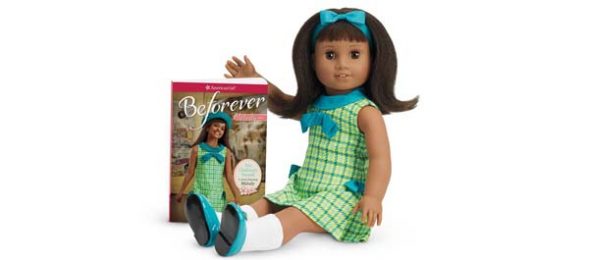I remember getting my Addy Walker doll, when she was introduced to the American Girl collection in 1993. I can’t say I remember asking for her or even wanting her, but one day, she was there. At first, I was kind of taken back by her plain appearance and clothing—just a simple, pink frock. I mean, the dolls with the crimp-it-yourself hair were all the rage then, and this doll had hair texture like mine (meaning: not easily crimped or combed for casual fun). But this doll did come with her own book and thus a built-in history, so I was intrigued. I read it. Then I read her next one and the next one. Before you know it, my interest in Addy had materialized into the entire book collection, a cookbook, multiple dresses and accessories. Prior to Addy, I’m quite sure I had heard lessons of slavery, the free North, the Civil War and the African American plight of that era. But this was the first time it all really connected. I was for the first time really interested in my history—African American history (I’m like 80 percent sure, I may have written a book report on Addy for school later that year).
Years later, I still remember Addy’s character and several aspects of her story (which means a lot because I can’t even remember if I turned off the oven more than half of the time). So, I say kudos to American Girl for getting little girls interested in history, especially little black girls who seldom see themselves or their history reflected in their worlds. And now I’m so delighted to hear American Girl has introduced a new black character, Melody, whose story is set in the civil rights era and whom I can’t wait to introduce to my own daughter.
NBCBLK reports:
Meet Melody Ellison, a young African American girl who is described as a “hopeful and positive” 9-year-old growing up in Detroit, Michigan during the Civil Rights Movement in the 1960s. Melody enjoys singing and joining her voice in harmony with others. When she experiences racial discrimination for the first time and sees others in her community experience it as well, she decides to use her voice to speak up for equality. She learns that when she joins with others, their voices become more powerful…
Go over to NBCBLK to read more about Melody.
BMWK: What’s your earliest memory of fully grasping the importance of a moment in black history?
